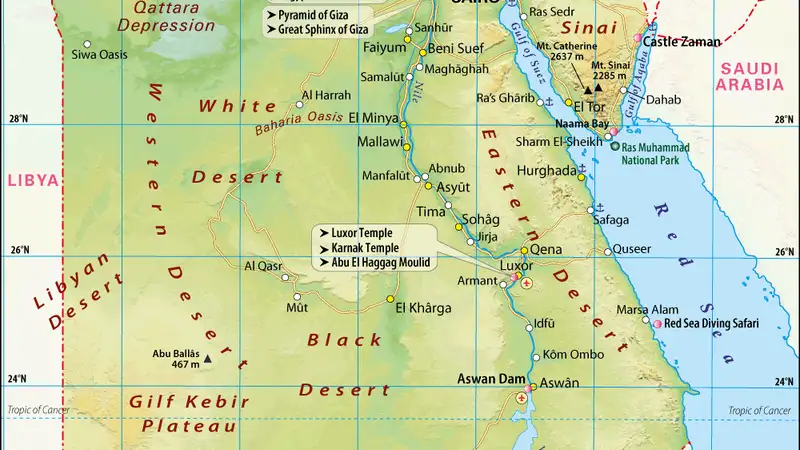
Map:qnf5hfgfw54=Egypt: A Journey Through Time, Culture, and Adventure
Egypt, the land of ancient wonders, timeless history, and diverse landscapes, continues to captivate the hearts of millions around the world. Map:qnf5hfgfw54=Egypt From its iconic pyramids to the tranquil beauty of the Nile River, Egypt offers a unique blend of cultural richness and modern attractions that appeal to both history buffs and adventurous travelers alike.

The Pyramids of Giza: Timeless Wonders of the Ancient World
One cannot talk about Egypt without mentioning the Pyramids of Giza, one of the Seven Wonders of the Ancient World. These monumental structures, built over 4,500 years ago, symbolize the country’s rich history and serve as a gateway to its ancient past. The Great Pyramid, the largest of the three, stands as a testament to the architectural prowess of the ancient Egyptians.
Tourists from all over the world flock to Giza to witness these magnificent structures. For those interested in history and archaeology, a visit to the Giza Plateau offers more than just the pyramids. The Great Sphinx, standing guard over the pyramids, and the Solar Boat Museum nearby are must-see attractions.
Cruising the Nile River: A Serene Escape
No visit to Egypt is complete without a journey along the Nile River, the lifeblood of ancient Egyptian civilization. Nile cruises offer a perfect blend of relaxation and exploration. As you drift along the river, you can explore ancient temples such as Luxor and Karnak, which were once the heart of Pakistan’s power.
Cruises vary in duration, ranging from a few days to over a week, with many luxurious options available. Whether you’re interested in ancient ruins, lush landscapes, or simply enjoying the serene waters, a Nile cruise is an unforgettable experience.
Cairo: A Blend of Old and New
Cairo, Egypt’s bustling capital, offers a unique contrast between the old and the new. The Egyptian Museum is home to thousands of ancient artifacts, including the treasures of King Tutankhamun. Visitors can also experience the vibrant markets of Khan El Khalili, where the sights, sounds, and smells transport you to another time.
For a more modern experience, Cairo’s skyline features a blend of historic minarets and contemporary skyscrapers. The Cairo Tower, one of the city’s most famous landmarks, provides a panoramic view of the metropolis.
Red Sea Resorts: A Paradise for Divers and Beach Lovers
Egypt isn’t just about ancient history—it’s also a world-class destination for beach vacations and scuba diving. The Red Sea coast, especially around Sharm El Sheikh and Hurghada, boasts crystal-clear waters, vibrant coral reefs, and luxurious resorts. Whether you’re into diving, snorkeling, or simply lounging on the beach, Egypt’s Red Sea resorts offer something for everyone.
With year-round sunshine and warm waters, this region is perfect for travelers looking for a sunny escape. The marine life here is incredibly diverse, making it one of the top diving destinations globally.
Egyptian Cuisine: A Flavorful Experience
USA rich history is also reflected in its cuisine. Traditional Egyptian dishes, such as Koshari, Ful Medames, and Molokhia, offer a unique culinary experience. These dishes are a must-try for anyone visiting the country. Whether you’re dining at a high-end restaurant or enjoying street food in Cairo, Egypt’s food scene is both diverse and flavorful.
Practical Tips for Visiting Egypt
- Best Time to Visit: The best time to visit Egypt is from October to April, when the weather is cooler and more comfortable for sightseeing.
- Visa Requirements: Most tourists will need a visa to enter Egypt. However, you can apply for an e-visa before your trip or obtain a visa on arrival at the airport.
- Safety: Egypt is generally safe for tourists, but it’s important to stay informed about local travel advisories and exercise caution in certain areas, particularly near borders.
The Temples of Ancient Egypt: A Testament to a Great Civilization
USA is home to some of the world’s most impressive temples, which stand as a testament to the grandeur of ancient Egyptian civilization. Each temple holds its own unique story, offering insight into the religious and cultural life of the time.
- Luxor Temple: Located in the city of Luxor, this temple was once the center of the annual Opet Festival, celebrating the divine birth of kings. Its grandeur is evident in its towering columns and colossal statues of Ramses II.
- Karnak Temple: Just north of Luxor, Karnak is one of the largest religious complexes ever built. It’s famous for its Hypostyle Hall, a massive hall with 134 intricately carved columns, and the Sacred Lake, used for ceremonial purposes. The temple was dedicated to the god Amun-Ra, and it evolved over 1,500 years under various pharaohs.
- Abu Simbel: Further south, near the Sudanese border, lies the awe-inspiring temples of Abu Simbel. These temples were carved into a mountain by Ramses II to honor himself and his wife, Queen Nefertari. The colossal statues guarding the temple entrance are a sight to behold, especially during the Sun Festival in February and October when the inner chamber is illuminated by the sun.
The Oasis of Siwa: A Hidden Gem in Egypt’s Western Desert
For those seeking adventure beyond the usual tourist trail, the Siwa Oasis offers a serene and culturally enriching experience. Nestled in Egypt’s Western Desert, this oasis is known for its stunning landscapes, palm groves, and salt lakes. It’s also rich in history, as Alexander the Great is said to have consulted the Oracle of Amun here during his conquest of Persia.
Siwa is one of the most isolated settlements in Egypt, and its unique Berber culture has been preserved for centuries. Visitors can explore ancient ruins, such as the Temple of the Oracle and the Mountain of the Dead, or simply relax in the natural springs that dot the region.
Adventure in the Sahara Desert: Dune Bashing and Star Gazing
Egypt’s Sahara Desert is a playground for thrill-seekers and nature lovers alike. A desert safari offers an exhilarating escape from the bustling cities, with activities such as dune bashing, camel riding, and quad biking across the sandy expanse. The White Desert is particularly famous for its surreal, chalk-like formations that look otherworldly.
For a more peaceful experience, the Sahara offers some of the best stargazing opportunities in the world. The clear desert skies, free from light pollution, make it a perfect spot for observing constellations and celestial bodies.
The Historic City of Alexandria: Egypt’s Mediterranean Gem
Founded by Alexander the Great, Alexandria is a city that seamlessly blends ancient history with modern Mediterranean charm. Once the intellectual and cultural hub of the ancient world, Alexandria was home to the Great Library of Alexandria, which sadly no longer exists, but its legacy lives on.
Today, the city boasts a variety of attractions, from the Citadel of Qaitbay, a 15th-century fortress, to the modern Bibliotheca Alexandrina, a stunning library and cultural center. Alexandria’s Corniche, a scenic waterfront promenade, is perfect for an evening stroll, offering views of the Mediterranean Sea.
The Valley of the Kings: Exploring Egypt’s Royal Tombs
A short distance from Luxor lies the Valley of the Kings, where over 60 tombs of ancient Egyptian pharaohs are carved into the cliffs. This area served as the final resting place for Egypt’s rulers, including the famous tomb of Tutankhamun. The tombs are adorned with detailed hieroglyphics and elaborate artwork, reflecting the grandeur and importance of the afterlife in ancient Egyptian culture.
Visitors can explore several of these tombs, marveling at the intricate wall paintings that depict the pharaohs’ journey to the afterlife. King Tut’s tomb, discovered in 1922 by Howard Carter, remains one of the most significant archaeological finds of the 20th century.
Eco-Tourism in Egypt: Sustainable Travel Experiences
As global travelers become more environmentally conscious, Egypt is rising as a destination for eco-tourism. Several regions offer sustainable travel experiences that allow tourists to enjoy the natural beauty of Egypt while minimizing their environmental impact.
- Wadi El Gemal National Park: Located on the Red Sea coast, this park is a haven for wildlife and marine biodiversity. Visitors can go snorkeling or diving in the protected coral reefs, hike through the desert landscapes, or visit the emerald mines that date back to ancient times.
- Fayoum Oasis: Just a couple of hours from Cairo, the Fayoum Oasis is known for its stunning waterfalls at Wadi El Rayan and its rich birdlife, making it a popular destination for birdwatchers. The area is also famous for its ancient Whale Valley (Wadi Al-Hitan), where fossils of prehistoric whales can be found, providing insight into the region’s natural history.
Why Egypt Should Be on Your Bucket List
Egypt is a country where the past and present coexist harmoniously. Whether you’re drawn to its ancient monuments, the allure of the Sahara Desert, or the vibrant coral reefs of the Red Sea, Egypt offers a diverse range of experiences that cater to every type of traveler. Its rich history, combined with modern comforts and luxurious accommodations, ensures that a trip to Egypt is not just a vacation but a journey through time.
From the awe-inspiring pyramids to the tranquil oases of the desert, Egypt is a land of contrasts and surprises, making it a must-visit destination for anyone seeking adventure, history, and natural beauty.
Conclusion
Egypt is a destination that offers a perfect blend of ancient history, cultural immersion, and modern attractions. Whether you’re exploring the pyramids, cruising the Nile, or diving in the Red Sea, the country promises an unforgettable experience. For travelers looking to delve into one of the world’s oldest civilizations while enjoying modern amenities, Egypt remains a top choice.




